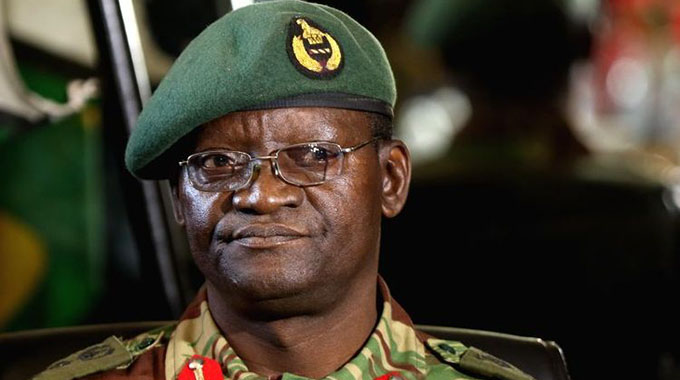Significance, meaning of Heroes’ Day

Kudakwashe Trevor Muranda Harare Institute of Technology
IF Christmas and Easter are very important to Christians, so is Heroes’ Day for Zimbabweans.
“Where there is no sacrifice there is no peace,” one great philosopher once explained.
Three important points are significant in understanding the meaning of Heroes’ Day, especially among today’s youths.
What is a hero? A hero or heroine is someone who gives himself to a cause, demonstrating exceptional courage, nobility and fortitude in a specific area in order to serve others.
Simply defined, he/she is someone who sacrifices himself/herself for the common good of others.
What is a sacrifice? A sacrifice is an act of giving up something valued for the sake of something else regarded as more important or worthy.
Anything in life can be given as a sacrifice either for noble purposes or for evil purposes.
In this paper, we will concentrate on what is the common good for everyone. Someone can sacrifice his time, money, talent, health and even life in order to achieve a better objective — an art of selflessness towards other people’s welfare.
What is the goal of a sacrifice? The goal of a sacrifice is to gain something more valuable than what was sacrificed for. An example would be that of Jesus Christ, who sacrificed his one life in order to reconcile billions of people to God.
Since the three questions have been explained, we can proceed to appreciate the importance of Heroes’ Day for Zimbabweans in general and for the youths in particular.
After a long protracted war against settler colonialists, Zimbabwe finally attained its independence in 1980. The goal of this war was freedom from colonization and the imposed negative image of indigenous Zimbabweans.
The negative and toxic portrayal of indigenous people was part and parcel of white colonial settler brutality under the guise of spreading “civilisation”.
God is unique and when He created people, He created them in His image. That makes everyone under the sun unique in their own way. Everyone needs freedom to express their uniqueness for the betterment of the world and one’s area of existence.
Without freedom, one’s gift or talent and expert opinion is consigned to oblivion.
The British and their settler descendants made laws which deprived indigenous Zimbabweans of their freedom. For example native Zimbabweans were evicted from the most productive land and resettled in areas that are arid, where they struggled to earn a living.
These harsh conditions led many to question the injustices of the white settler colonial rule.
If a gift is suppressed for a long time, it becomes fire in the holder, to the extent that he/she can do anything in order to unleash the fire that is bottled up in them.
This was the situation with the heroes and heroines of the liberation struggle, beginning with the First Chimurenga in the 1890s. The First Chimurenga marked the rise to the fore of heroes and heroines such as Sekuru Kaguvi, Chaminuka, Nehanda Nyakasikana and Lozikeyi Dlodlo.
They sacrificed their lives in order to fight during the resistance and in the process taught their children the essence of self-deliverance and freedom from colonial powers.
As a result of the zeal and the burning fire in the quest for freedom, the Second Chimurenga brought many heroes and heroines, unlike the first. This led to victory in 1980 when Zimbabwe gained independence.
During the liberation war, many sacrificed their lives in combat, some their time, money, intellectual capabilities in war strategy, development and implementation.
Yet others sacrificed their lives as a network of informers — mujibhas and chimbwidos. Some played the role of uplifting the morale of the comrades through motivational songs, as exemplified by Cde Chinx Chingaira or the LMG Choir.
I am presenting the argument that all were heroes and heroines in the area of their skill, talent or gift. Since everyone is unique in his or her own way, all heroes and heroines are equal because it was their individual and combined efforts which ushered independence in 1980. So all heroes, both great and small, are equal as far as the August 10 celebrations are concerned.
Heroines were female resistance figures who sacrificed their lives by fighting side by side with their male counterparts. Among these are Cde Ruth Namonde Chinamano, who offered the back of her shop in Highfield to be used as an office for the National Democratic Party. In 1963, she was elected secretary of the Salisbury district of the Zimbabwe African Women’s Union (ZAWU), ZAPU’s women’s wing.
In 1964, together with her husband, Cde Josiah Chinamano, Cde Joseph Msika and Cde Joshua Nkomo, they were detained at Gonakudzingwa — the first four inmates of Gonakudzingwa and she was the only female.
As youths, Heroes’ Day teaches us that in order to obtain something more important in life, there is need for sacrifice. That means jettisoning some questionable moral values, behaviours and practices so rampant among students these days.
It is a tragedy to hear some youths despising or denouncing our forefathers who sacrificed their lives so that we could have the freedom that we have today compared to the oppression by white colonial settlers.
How, as the youths, are we contributing to the future of this country, so that generations to come can look back and point to and cherish our achievements?










Comments